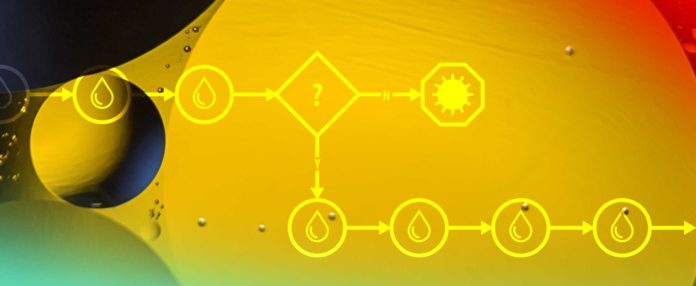The American Chemistry Council on Monday provided an emergency protocol meant to give companies flexibility to cope with unavailability of automotive lubricant additives resulting from the Covid-19 pandemic.
The council’s Petroleum Additives Panel developed the protocol specifically to deal with fallout from the disease and what it fears could be unprecedented disruption to additive supply chains.
During a telephone interview Tuesday, ACC officials declined to discuss impacts on specific materials or those likely to experience supply chain disruptions, but the organization confirmed that disruptions are already occurring and that the situation may worsen.
“The Covid-19 pandemic has created a variety of supply chain and manufacturing challenges for lubricant additive suppliers,” the Petroleum Additives Panel said in a written announcement. “While each company has a business continuity plan to deal with calamity situations, a global pandemic of this magnitude and duration has never been experienced before.
“All additive companies are operating their manufacturing and research facilities under their individual business continuity plans in light of the current global pandemic. However, the situation could change very quickly at any time, presenting complications beyond those reasonably contemplated by their plans.”
The protocol provides general guidelines for additive companies to replace chemical components if a material normally used in a finished lubricant or an additive package becomes unavailable. The following are the guidelines:
- Exchanges must be made only to the extent reasonably necessary for the company to maintain continuity of supply.
- Exchanges will be limited to well-established and proven chemistries that are of similar chemical composition or function, deemed acceptable based on the companies’ technical judgement and already in use in similar applications.
- The total amount of component exchanges will be limited to the minimum that is strictly necessary to maintain supply and for which there is adequate technical justification and subject to customer agreement.
- The component exchanges shall be documented and provided to customers – lube marketers – or approving bodies. Documentation must include technical support for the interchange and a plan and timeline for return to normal operation.
- Exchanges can only be made during the duration of the emergency protocol.
PAP officials noted that the industry already has the American Petroleum Institute’s Emergency Provisional Licensing process, which allows individual engine oil marketers to apply for changes to the formulations of their licensed products by making substitutions in case of disruptions to their own supply chain. When the pandemic began causing big economic disruptions, though, panel member companies realized that the API 1509 process alone could be insufficient to address widespread global disruptions for multiple lubricant oil additive suppliers.
“We saw a void in the system,” Petroleum Additive Panel Manager Doug Anderson said. “This is meant to address that. Hopefully we won’t have too many of these to deal with.”
Officials said there is reason for confidence that the protocol can be followed without compromising performance of the products involved. First, the customers that need to agree to interchanges – be they lubricant marketers, original equipment manufacturers or licensing bodies such as API – have an interest in assuring that performance is maintained. Second, the industry has a track record of successfully taking such actions on much narrower scales when individual companies experience disruptions. API has emergency provisional licensing protocols for disruptions to supply chains of licensed engine oils. ACC officials said each additive package supplier has its own process – called management of change processes – establishing protocols for coping with such disruptions. Those processes are confidential and vary from company to company.
API issued a statement Tuesday reminding the industry about its Emergency Provisional Licensing program and the relief it can provide to lubricant marketers experiencing supply chain disruptions for licensed engine oils.
Petroleum Additives Panel Chairman Joan Evans said the panel intended the new protocol to be non-specific so that it might allow companies to adapt to a wide range of situations that the group believes could develop.
If a company finds itself unable to obtain a chemical component for one of its formulated engine oils, it would ideally replace it with another chemical that it has tested and shown capable of matching performance. Fallback alternatives could be to procure a replacement from a new source – possibly a competitor – or to turn to a new component that is chemically or functionally equivalent. In either case, the company may not be able to follow their own component exchange guidelines in this emergency situation.
The protocol states that the new component must already be in use in a similar application. The company would then attempt to obtain available performance data on the new component and apply their technical judgement about its ability to match performance; the ability to conduct testing to demonstrate such performance might not be timely or viable if testing operations have also been impacted by the pandemic. In such a situation the protocol provides that the additive company, with approval of its customer, might use the replacement component for the limited duration of the protocol.
The Petroleum Additives Panel said it was enacting its emergency protocol for 120 days, although it has the ability to extend that period. Once it expires, companies will have 90 days to revert to original formulas unless they are following their own management process, in which case those must be completed within 180 days.
The panel advised anyone with questions about the emergency protocol to contact Petroleum Additives Panel Manager Doug Anderson at the ACC.
